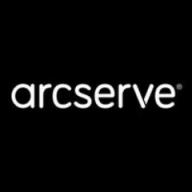

Arcserve UDP and Oracle Data Guard compete in the data protection and disaster recovery category. Oracle Data Guard appears to have the upper hand due to its advanced features and reliability, although Arcserve UDP offers more competitive pricing.
Features: Arcserve UDP users find it comprehensive for data protection with features like ease of use, flexible recovery options, and integration with various platforms. Oracle Data Guard users value its high availability, automated failover capabilities, and data integrity. The advanced disaster recovery features of Oracle Data Guard make it stand out.
Room for Improvement: Arcserve UDP could improve its reporting tools, offer a more intuitive setup process, and provide enhanced UI/UX. Oracle Data Guard needs better compatibility with non-Oracle environments, more streamlined patching procedures, and additional user-friendly documentation.
Ease of Deployment and Customer Service: Arcserve UDP offers straightforward deployment and responsive customer support. Oracle Data Guard has a more complex deployment process but provides excellent technical support and comprehensive documentation.
Pricing and ROI: Arcserve UDP is cost-effective with flexible licensing, leading to a good ROI. Oracle Data Guard is more expensive, but its advanced functionalities and reliability justify the cost and offer a high ROI.
| Product | Market Share (%) |
|---|---|
| Oracle Data Guard | 0.9% |
| Arcserve UDP | 1.1% |
| Other | 98.0% |


| Company Size | Count |
|---|---|
| Small Business | 23 |
| Midsize Enterprise | 10 |
| Large Enterprise | 9 |
| Company Size | Count |
|---|---|
| Small Business | 7 |
| Midsize Enterprise | 3 |
| Large Enterprise | 22 |
Oracle Data Guard ensures high availability, data protection, and disaster recovery for enterprise data. Data Guard provides a comprehensive set of services that create, maintain, manage, and monitor one or more standby databases to enable production Oracle databases to survive disasters and data corruptions. Data Guard can be used with traditional backup, restoration, and cluster techniques to provide a high level of data protection and data availability.
We monitor all Backup and Recovery reviews to prevent fraudulent reviews and keep review quality high. We do not post reviews by company employees or direct competitors. We validate each review for authenticity via cross-reference with LinkedIn, and personal follow-up with the reviewer when necessary.